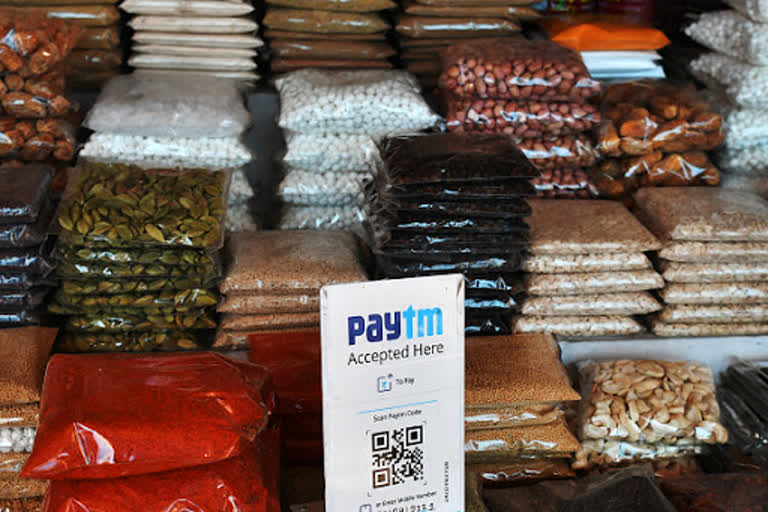New Delhi: Quick response (QR) codes have become a common payment option for Indian smartphone users at restaurants, grocery shops and the like, and it was Paytm which pioneered the method and leads the field, which has now attracted the interest of tech majors like Google and Facebook-Whatsapp.
The first Indian company to integrate payments into QR and take it to the level of neighborhood stores Paytm had hired 10,000 agents during demonetisation to expand its merchant network and strengthen its team to take more users on board, so that "Paytm Karo" soon became a slogan for digital payments.
Its success in the digital payments space from various day to day payment use-cases to Paytm QR - has now attracted American giants. Media reports said that Google Pay and Phonepe are increasingly looking at offline payments and trying to carve out a share in the Paytm-dominated market.
Offline payments are increasingly in focus with the government proposing zero charges on all forms of digital payments to encourage their use.
Read More: BSNL orders officers to fly economy class to cut costs
Paytm says it has reported that it registered more than 250 million monthly transactions through Paytm QR in 2019-20's first quarter - more than the combined number of other QR-based payments on different platforms - making it the unquestioned leader in the space.
Paytm's Senior Vice President Deepak Abbot said: "Paytm was the first company to identify the need for a no-cost payment method, which would be convenient & secured for both merchants and customers. We launched our innovative Paytm QR in 2015 that customers could simply scan with their smartphones & pay to the merchant.
Paytm QR, he said, "revolutionized the entire digital payments industry and millions of people adopted it across the country, right from the local Kirana stores, auto-rickshaws and fast food joints to top-end hotels & restaurants".
"We feel pride in seeing that its popularity has inspired many other digital payments companies, including the UPI to adopt a QR-based payment method," Abbot added.
He noted that Paytm "continues to be the digital payments leader in India", seeing a three-fold growth in the last one year in both online and offline payments.
"With more than 12 million merchants on board, we register over 250 million monthly offline transactions."



